The £1.5bn competition to build up to three Fleet Solid Support Ships for the Royal Navy has been suspended, say the Ministry of Defence.
It is understood that Defence Secretary Ben Wallace halted the competitive tendering process because bidders were “not compliant” with cost.
Competing for the work was a British consortium consisting of companies Babcock, BAE Systems, Cammell Laird and Rolls-Royce (forming Team UK) and international bidders Fincantieri (Italy), Navantia (Spain), Japan Marine United Corporation, and Daewoo Shipbuilding and Marine Engineering (South Korea).
Fincantieri and Daewoo Shipbuilding and Marine Engineering had already withdrawn, according to the Financial Times. This left only Team UK, Navantia and Japan Marine United Corporation.
The Ministry of Defence said in a statement:
“It is clear that the current approach will not deliver the requirement. We are now considering the most appropriate way forward for the procurement project.”
It has also been reported that some regard the suspension as a first step to reclassifying the vessels to be exempt from EU laws, allowing them to be built in the UK rather than overseas.
That the vessels were put out to international tendering attracted a lot of criticism from a wide range of sources, including the UK Defence Journal.
During a debate last year on UK sovereign capability, All-Party Parliamentary Group for Shipbuilding & Ship Repair Vice-Chair Paul Sweeney pointed out that despite claims to the contrary from some corners, the UK was well within its rights to protect the Fleet Solid Support Ships tendering process from international competition, something the National Shipbuilding Strategy did not address when published:
“In the context of major shipyard closures and significant downsizing, whether that is at Rosyth or Appledore, it is bizarre that the Government are quite happy to tender contracts overseas in international open competition. Under article 346 of the treaty on the functioning of the European Union, the Government could quite easily designate the industry as UK protected. It is entirely at their discretion. Any notion that their hands are tied is bogus. They could do that, smooth the production cycles and build a firm and stable footprint for UK shipyards, which would enable them to get match fit and then go out into the world and compete effectively for other orders. That is exactly what they do in Italy with Fincantieri, and what they do in France with DCNS. It is exactly what happens in Germany.
I do not understand why other European Union member states can achieve the same objectives much more effectively than us, but we are so holier than thou that it hurts when it comes to the zealous application of these EU rules and we seem to undermine our own industrial base and our prosperity as a result, meaning that communities are broken and skills are lost. Ultimately, we undermine our objective of building a more resilient and effective industrial base to serve our defence industry and, potentially, commercial spin-offs.”
The National Shipbuilding Strategy itself was informed by Sir John Parker’s 2017 report that set out how the Government should pursue shipbuilding efforts in a way that best suits the UK, however, in a recently released review of the implementation of the Government’s National Shipbuilding Strategy, Sir John Parker advised that the Fleet Solid Support Ships and other classes of vessels should be protected against international tendering:
“A wider range of ship classes should be procured via UK-only competition. This will drive volume into the industry, supporting efficiency and sustainability of a competitive bidding capability.”
With a general election set for the 12th of December, it is unlikely that the competition will be revived this year.


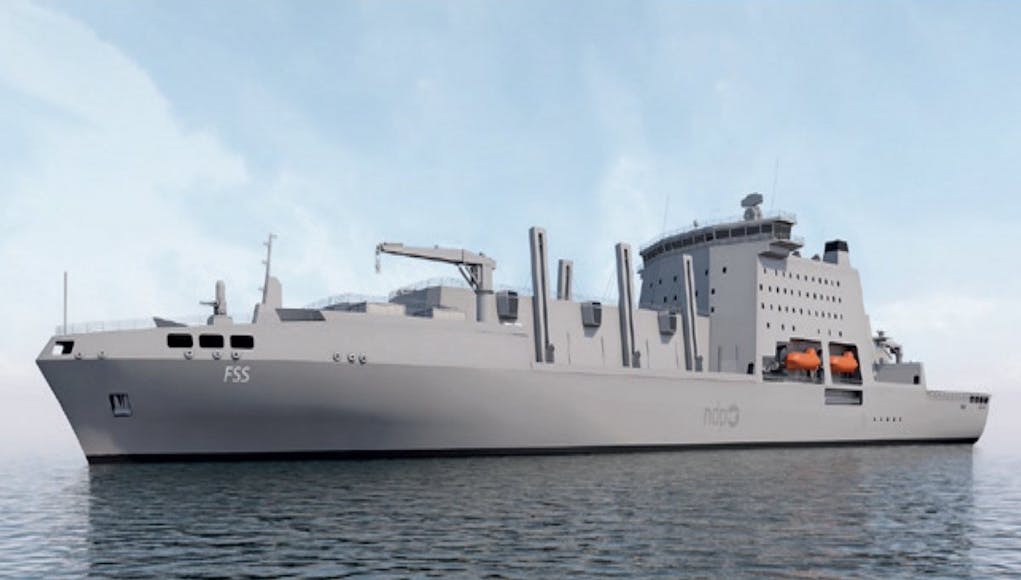
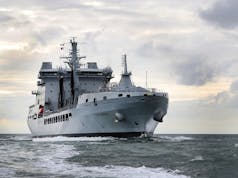
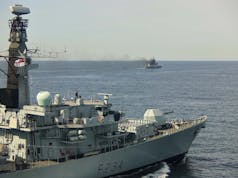
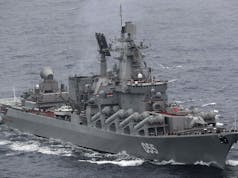
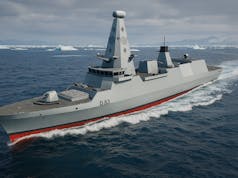

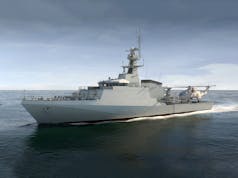

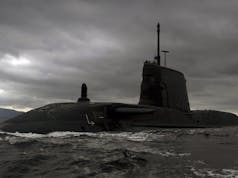
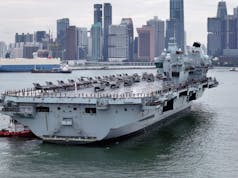
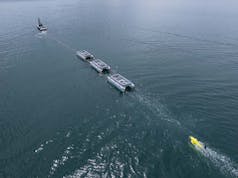

It would be good if this was the start of a rethink on where the new RFA’s are going to be built. I’m calling dibs on Rosyth….
Watch out
For camel laird they had a team inspecting the big dry docks in Greenock and Ferguson’s is for sale along the water…..
As long as its in the UK that’ll do for me to be honest Colin.
Yes I fully agree
Agree has to be in the UK. Nothing else is acceptable.
Inchgreen Dry Dock and area is the natural place to compliment Cammell lairds Birkenhead facility. The possiblities are huge. The ambition for Inchgreen by the local people is there and not for waterfront developments as in leisure, retail, bars, shops, houses and all that stuff in the wrong area, but a modern marine manufacturing development with great high quality modern marine jobs in across the sector (shipbuilding is certainly central).
No bad thing in my opinion
We have a long term requirement to replace 16 large vessels plus add a further 2 in the new FLSS requirement and for me we need to think long and hard about what we need, utilisation, cost and how we use this long term requirements into the NSS and regenerate our shipbuilding capability.
For me we can achieve all of this with 1 base platform the Aegir used for the tide class developed into a fleet of 8 enhanced karel doorman class JLSS capable of operating S2S connectors.
Another fleet of 8 Flo Flos costing circa £100m each can then be built and with investment in a number of mega modules can be configured for task whether that is hospital ship, maintainance, FLSS, RoRo or additional FFT
Committing to a whole fleet 25 year plan means we can build or buy the 20 large vessels the RN/RFA need to move forward and can do so at lower cost with a massive increase in capability that should release funds for additional combatants
The above approach standardises our fleet across one or two base hulls and gives us all the flexibility we could ever need at a much lower cost point.
The Karel Doorman style asset is something that would transform the RN/RFA if we can tweak the design a little bit more and then use the FLO FLOs for more specialist requirements using mega modules ( see think defence article on this)
Time for a strategic plan that gives us VFM and a massive strategic uplift
The KD fleet alone can hanger 48 merlins as standard and double at a push whilst giving a real logistics capability as well
I think you (Pacman27) and I share a desire to, where practical and appropriate, see as much commonality as possible to streamline ongoing running costs going forward. To take an imaginary example simply to illustrate, having a fleet 20 escorts comprised of 6 different classes is likely to suck up more money each year from the annual budget and increase the risk of technical skills gaps on a particular class vs a fleet consolidated around fewer classes. Consolidation might initially mean additional design and construction costs to phase out orphaned vessels but ultimately could deliver a bigger navy than would otherwise be sustainable within a given annual cost and personnel constraints.
With stuff in play such as FSSS and LSS plus Argus, Bays and Points out there already (not to mention Forts) it really does seem to me that there is considerable scope for some longer term planning and rationalisation of the whole RFA fleet which if done properly could yield savings and reduce pressure on technical resources going forward plus probably build in more flexibility in terms of having intentionally designed multi-role vessels available rather than pushing something into a role it is not suited for because a more appropriate asset isn’t available.
Agreed Julian and in many cases we actually end up with something better and more useful. The capability of the KD is simply astonishing it delivers a similar logistics load to a Wave or Fort class can operate 6 merlins or 2 chinooks from its 2 landing spots
The article on TD about FLOFLO’s changed my view on a lot of this and is one of the best articles I have ever read.
Why buy a tide class tanker when you can buy a FLO FLO and add the mega module. Clearly the tides are in demand and refilling is not required so it makes sense to have dedicated assets for such highly utilised capability but for other areas such as hospital and maintenance ships it isn’t
The age of systems is with us and we should look at things from a modular viewpoint. It may seem strange but a FloFlo and Boxer APC are essentially the same thing they are the cradles that hold the capability and this can be swapped out as needed
T26/31 are similar in that they can deploy the MCM suite or a set off commandos on CB90’s and I for one believe T26 should be upgraded with the Sampson replacement now and we replace our T45 and T23 saw fleets over the next 20 years
For me it’s obvious and needs commitment and scheduling. A 90 ship RN/RFA means we can buil 3 vessels every single year and that is enough to maintain a high class engineering industry
We are in agreement Julian on most things
“many regard the suspension as a first step to reclassifying the vessels to be exempt from EU laws aimed at preventing protectionism”, I think this has been coming for awhile now.
The political, economic and legal cases have been made repeatedly for sometime, particularly by theAll-party Commons Defence Select Committee.
Of course there is the small matter of the election first… DOH!
Question I have to ask is, why has it taken so long to get to this, especially when most EU countries take no notice of EU laws.
Because we’re British old boy, we obey the law, play fair and follow the rules, queue orderly, and always keep calm and carry on.
Sorry hit flagged by accident can’t de-flag it
It’s not about eu law it’s about neoliberal political dogma that demands the primacy of the market above all else including the wellbeing of the nation. The British political system has been rampant with very hardline neoliberalism from both the Tories and labour for a couple of decades ( hiding it behind centrist tradition liberalism, which is actually the antipathy of neoliberalism, which is really ironic) That’s why we are now seeing a movement to the Brexit party and Corbins labour, both of which reject neoliberalism in their own ways.
“I do not understand why other European Union member states can achieve the same objectives much more effectively than us, but we are so holier than thou that it hurts when it comes to the zealous application of these EU rules”
The author, a trade unionist I believe, has cottoned on to one of the fundamental mismatches between the UK and the EU but doesn’t grasp why. And it is this lack of awareness that frustrates me in conversations with Remainers.
The answer is Common law versus the Napoleonic code.
It is one of the key incompatibilities in mindset between the UK and continental Europe and a perpetual splinter in our sides.
In short – in the UK law should be limited but applied rigorously “to the letter of the law”. But, in the EU law is ubiquitous but applied liberally “in the spirit of the law”. It arises from our cultures and our relationships with our governments an ingrained identity stemming from Habeas Corpus and Magna Carta from the 12thC!
Unfortunately as members of the EU, we have been handed down directive after directive, as is the custom in continental Europe, which we then legislate, interpret and apply in our customary fashion. The consequence we have become heavily burdened by laws and rules this last 40yrs, which we apply rigorously, but this was not the spirit of our European friends – and is certainly not something we’re going to change after 800years.
That is very convincing, we are so afflicted with tradition that it seems it just is not in our character to change what is chiselled into out psyche even when we see the damage it is doing to our economy.
Hi Nath,
Very interesting point and well made. Explains what I have long observed about how we behave relative to our European friends.
Having said that I think in this particular instance the EU directive was a convenient political excuse rather than the core driving reason. May be I’m getting too cynical in me old age, but I think classifying the RFA’s as not being a class of warship was driven by the UK governments overly narrow way of doing cost benefit analysis / economic apprasials i.e. political focus on up front costs and neglecting running costs and economic / tax returns, etc. when stood in front of the cameras.
After all we wouldn’t call members of the Royal Logistic Corp civvies would we? OK I know the RFA crews are employed on merchant seamen like terms (I think there are some added defence related bits to their T&C’s), but as two World Wars and the Falkland Islands War demonstrated when the poo really hits the fan the Merchant Navy is just as much in the firing line – armed or not – as the Royal Navy. (Actually the Merchant Navy deployed with women members of their crews in the Falklands if I remember rightly!)
I reckon you’re right that its more to do with the upfront cost affecting a budget. People tend to worry about their own budget than the big picture so putting it out to tender would save cash on an individual budget. Not great ‘big picture’ though of course.
Don’t really agree, you can cherry pick bits that we do or don’t do according to EU rules, same as other countries.
I’m not buying your logic of Magna Carta logic either, while there’s a lot wrong with our parliamentary process, the reticence to ‘evolve’ it has more to do with it suiting the 2 party system and the lies that politicians sell us. ‘Our’ relationship with our governments has changed a lot, we’re seeing more (smaller funnily enough) Party’s looking to shake things up at Westminster and the devolving of the ‘Celtic parliaments’ has changed things up again.
It just seems that its a moan that somehow we’re the goodies doing the EU’s bidding and everyone else is doing what they like. And trying to justify that view. Anyhoo, it shouldn’t be an issue for much longer, we’re leaving the EU aren’t we ?
Let’s hope what Evers chosen has a large hangar for more than 3 choppers, a very handy asset.
What’s interesting is if the non compliance on cost is the reason then it debunks the mythe that foreign yards would subsidise the bid to win. These now need to go the way of the T31, essentially categorised as a UK only competition.
In summary another excuse to delay the expenditure. The MOD did the same thing with the same excuse with the yet to be ordered t31.
Steve the type 31e order has been agreed I thought as DSEI conference 6 weeks ago, or so it was reported on this website and in Warships IFR? Babcock iver huidtfield derivative.
Agreed in principle but not signed, no money has yet been put down.
If, when we leave the EU we are no longer compelled to follow acquisitions rules, that everyone else in Europe ignores. Then maybe a British shipyard will get this vital order?
If they are just labelled “war like” vessels, which of course they are, and will be treated as, by any potential enemy of the UK in the future. Then does that avoid the EU acquisitions rules? I think it does.
George is of course right in that UK ship building should be relabelled a strategic national asset and therefore not necessary to follow EU rules. George is totally correct all our EU partners have labelled all their ship building in this way and do not go out to international tender for support ships or warships.
How can any yard want more than £500 million per ship to build a 40,000-45,000 ton replenishment ship? Seems the budget is right but the yards want more?
Seems HMG need to take stock, change track and they should be fine.
All Royal Navy and R.F.A. ships should be built in the U.K. (note I say U.K. and not Scotland). With the Clyde busy with the Type 26 and Rosyth busy with the Type 31 Cammell Lairds on the Mersey would love this work, they have had job losses after completing the R.R.S. Sir David Attenborough, or is it purely Scottish shipyards’ job losses that matter?
Certainly it will not be fair at all if Scotland gets the solid support ships on top of everything they have already had whilst famous English shipyard after famous English shipyard closes down, or are forced to survive on a diet of left overs.
The call to reshore such capabilities probably goes beyond value for money. With the increasingly unstable international conditions the requirement becomes ever more a strategic imperative.
It’s not really strategically anything. The days where we had big enough navy to be able to control a region are gone, as are the days of being able to rush out ships if needed in the event of a war.
We now live in a world where ships takes years to build and cost a ton, but this is balanced out with us having a large number of operations to buy from, so if we fall out with any one option, we have others available.
It has nothing to do with military advantage and everything to do with winning votes.
I think it is more than luck that strategic imperative and political point scoring coincide. There is a genuine understanding amongst us voting fodder that lowest price, outsourcing and buy from aboard is not necessarily in the long term interest of the majority. That it is has taken so long to reach those in Whitehall is hardly surprising given that most that inhabit that place are so out of touch.
This was never about EU competition rules, UK governments since the 1980s have all had some of the most hard line neoliberal ideas of any nations, it’s one of the key reasons we don’t have much in the way of heavy industry. Pretty much every other major nation on earth protects its industries, the British way is to always allow the market to decide even if that means providing jobs and wealth to our strategic competitors.